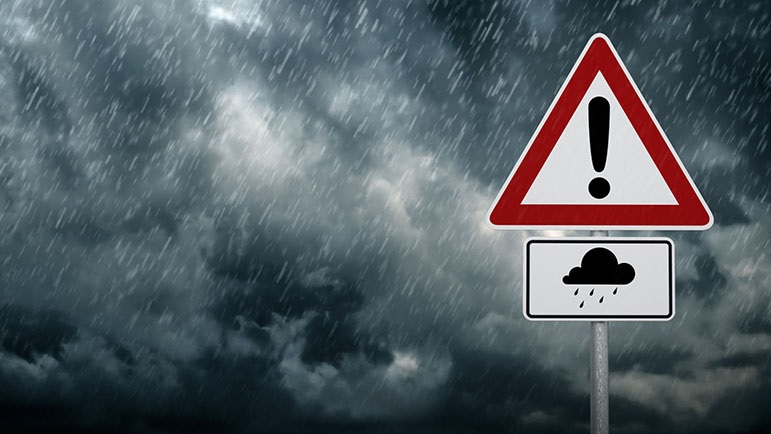2020 was a year of extremes with the wettest February on record, the sunniest spring, a heatwave in the summer and a day in October breaking rainfall records, says the Met Office,
And it looks likely to be the third or fourth warmest on record.
This makes it clear that the general trend of warming as a consequence of climate change is being seen, not just at a global level, but in our own national temperature records, say the weather experts.
Not only was 2020 be one of the top five hottest on record for the UK, but also it will be one of the top ten wettest and the top ten sunniest years.
Winter 2019/20 was the fifth wettest on record (data back to 1862) for the UK, as well as the fifth mildest.
The most noteworthy winter month was February, due to a rapid succession of storms, rainfall totals were well above normal virtually everywhere, with many places getting more than three times their expected average.
It was the wettest February on record (records back to 1862) with the UK recording 237 per cent of its average rainfall.
After what was a notably wet winter, there was a marked change to much drier and more settled weather in mid-March, and the UK had a record-breaking sunny spring.
It proved to be the sunniest spring with 626.2 hours of sunshine in a series with data from 1919.
It was also the fifth driest spring for the UK overall, but some counties in north east England and eastern Scotland recorded their driest spring since rainfall records began in 1862.
Overall, summer 2020 was warmer, wetter and duller than average with June, July and August all seeing some settled, hot spells.
Met Office research shows that the chances of extreme high temperatures in parts of the UK are increasing and, under a high CO2 emissions scenario, by the end of the century the UK could potentially be seeing 40°C days every three to four years on average.
Overall, autumn was marginally warmer than average, while a relatively sunny and dry September gave way to a dull and wet October balancing out rainfall and sunshine for the autumn overall.
There were some fine, warm days in September, which was drier and sunnier than average for most places.
October was mainly wet and dull, especially in the first half of the month. Storm Alex (Oct 2nd), named by MeteoFrance, marked the start of October and moved into southern Europe where it caused severe flooding. October 3rd was an exceptionally wet day with enough rain falling across the country to fill Loch Ness.
Dr Mark McCarthy said: “In climate statistics, 2019 will be remembered for the UK’s hottest day, whereas 2020 will be associated with rainfall records.
“Saturday, October 3, the day which followed Storm Alex, provisionally holds the record for the UK’s wettest day on record, in data stretching back to 1891 – that’s over 47,000 days.
“Remarkably 2020 also has the third wettest day with the rainfall associated with storm Dennis in February.”
Christmas 2020 was officially a white Christmas with parts of Suffolk, Cambridgeshire, Yorkshire and Northumberland seeing snowfall on the 25th. However, snow days are becoming increasingly rare in the UK.
Only four Christmases in the last 50 years have recorded widespread snow i.e. at more than 40 per cent UK weather stations.











